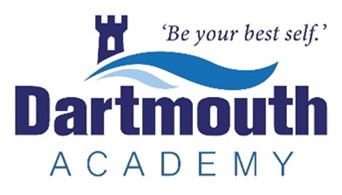PSHE

PSHE
Ms. Webb
“Kind words last longer.” Anon
We believe that PSHE is an important and necessary part of all pupils’ education. PSHE brings together personal, social and health education, work-related learning, careers, enterprise and financial capability. Our PSHE curriculum promotes the spiritual, moral, cultural, mental and physical development of pupils at the school and prepares our learners for the opportunities, responsibilities and experiences of later life.
PSHE, at Dartmouth Academy, is delivered in weekly lessons for years 7 to 10 and bi-weekly lessons for year 11 pupils. At primary, PSHE is delivered by a pupil’s classroom teacher. Aspects of PSHE are also delivered through our assembly and tutorial programme as well as in other curriculum subjects such as Science, English, RE and Maths. We use a spiral approach in our curriculum which revisits topics each year at a different developmental stage. Research into PSHE identifies the spiral curriculum as an essential component of effective teaching and learning. Our schemes of learning are used in the context of a whole-school approach to meet the statutory aims of the curriculum to which PSHE education is essential. The aims are to enable all young people to become:
- Successful learners who enjoy learning, make progress and achieve
- Confident individuals who are able to live safe, healthy and fulfilling lives
- Responsible citizens who make a positive contribution to society
There are three key strands that are mapped across our curriculum for each of the years.
We aim to cover aspects from each of these key strands throughout the academic year:
- Health and Well Being
- Relationships
- Living in the Wider World
Within these strands we focus on such topics such as:
- how to manage transition
- how to maintain physical, mental and emotional health and wellbeing;
- how to make informed choices about health and wellbeing matters including drugs, alcohol and tobacco; maintaining a balanced diet; physical activity; mental and emotional health and wellbeing; and sexual health
- how to develop and maintain a variety of healthy relationships within a range of social/cultural contexts and to develop parenting skills
- how to recognise and manage emotions within a range of relationships
- how to deal with risky or negative relationships including all forms of bullying (including the distinct challenges posed by online bullying) and abuse, sexual and other violence and online encounters
- about rights and responsibilities as members of diverse communities, as active citizens and participants in the local and national economy
- how to make informed choices and be enterprising and ambitious
- how to develop employability, team working and leadership skills and develop flexibility and resilience
“We can’t always choose the music that life throws at us, but we can choose the way we dance to it.” Anon.
